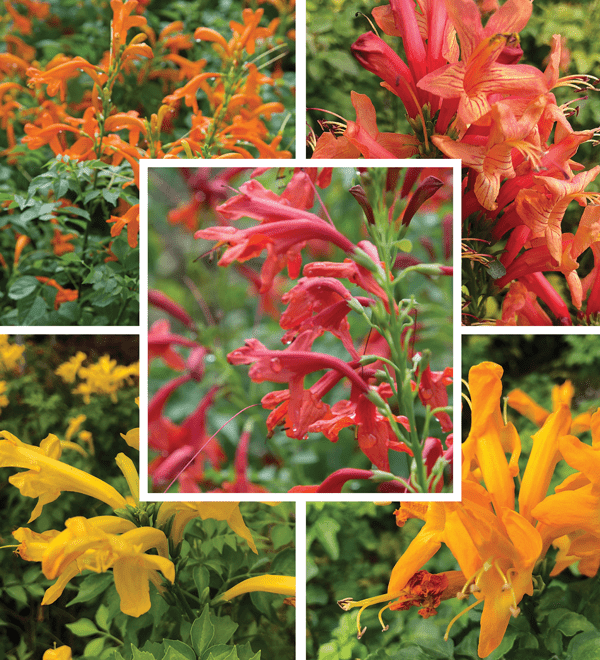An exciting breakthrough in cape honeysuckle breeding. These bushy plants are perfect for smaller spaces and won’t grow out of control. In frost-free climates, these evergreen plants bloom through winter—a great food source for pollinators.

An exciting breakthrough in cape honeysuckle breeding. These bushy plants are perfect for smaller spaces and won’t grow out of control. In frost-free climates, these evergreen plants bloom through winter—a great food source for pollinators.
12–24
20°F to 30°F USDA zones 9–11
4-5' H x 3' W
Accent, Border, Container, Low Hedge, Mass planting
Evergreen
Moderate
Full sun to part shade
Attracts Pollinators, Cut Flowers, Heat Tolerance, Reblooming, Upright Habit
Feature
Brightly colored flowers continuously until frost
Spring, Summer, Fall
Low Water Once Established
Fertilize throughout growing season
Pruning
Shape after spring bloom
Tolerates most native soils
1. Dig in your native soil a hole as deep and wide as the container. We recommend planting in native soil for best acclimation.
2. Fill the hole with water and thoroughly water the new plant; allow both to drain.
3. Gently place the plant on its side and remove the pot. Place your hand on the bottom of the plant and put it in the hole.
4. Return native soil around the root ball, wetting and gently tamping down.
5. To complete, create a shallow trench around the base of the plant to contain the water when watering.
6. Mulch 1–2” deep around the plant, avoiding the area closest to the stem.
Your zip code 98040 is located in Zone: 9a with a temperature range of: 20 to 25 °F.